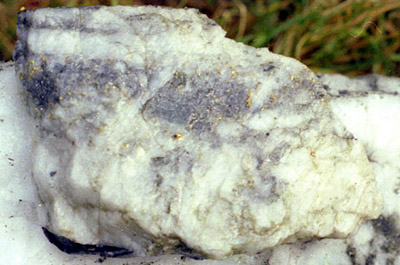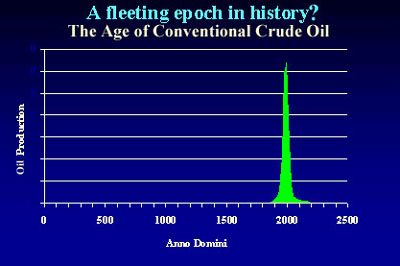BACK
TO WEATHER-BLOG MENU
New!
Fine Art Prints & digital images for sale-
Welsh Weather
& Dyfi Valley landscapes Slide-Library - Click HERE
GLOBAL
WARMING - WHAT A LOAD OF SNOWBALLS! Daily Star, 19th December 2009
CLIMATE
NUT BROWN WILL RUIN BRITAIN - Daily Express 19th December 2009
Winter
has arrived in earnest this week. It is just after 9 am here in
Machynlleth and I have logs burning in the grate as light snow falls
outside. During cold spells, lighting the fire is pretty much the first
job of the day. Within an hour or so, the room in which I am working
will be into double figures and I might take off one of the extra
padded shirts I am wearing.
Edit.
Just finished writing and the snow is now 1cm deep - and coming down
again. Here's a magnified shot of the crystalline snow-grains from
earlier:

So... they came, they argued and they went. What can we conclude about the Copenhagen climate conference? Well, quite a lot of things but they all have a common thread. That is, that you cannot have infinite growth on a finite planet. Unfortunately, our various leaders hold the opposite view, and that is the fundamental reason why nothing concrete came out of Copenhagen, and was very unlikely to in the first place. So I want to explore this issue in a bit more detail.
We,
and virtually every other populated country on the planet, are to
varying degrees living lifestyles that are demanded by the Infinite
Growth Paradigm. Growth is seen as essential: non-growth means failure.
To maintain growth means continually increasing economic activity on a
personal level - in other words to maintain growth, we as individuals
must consume as much as we can. Or, more fundamentally, we must purchase as much as we can - and we
do - here in the UK we throw away 6.7 million tonnes of food every year.
The
moralities or otherwise of that wastage are outside the scope of this
post. They are merely one symptom of a deeper underlying illness. The
illness is the very system by which we live, and I'll try to explain
why.
It
is a very basic first principle that to purchase and consume material
things, we require materials in the first place. In the case of
modern farming, the materials are things like mineral fertilisers -
phosphates, nitrates and so on, which increase yields of crops that are
eaten directly or indirectly by people, either as grain and vegetables
or as meat. In electrical goods such as mobile phones, the materials
include a spectrum of uncommon metals such as niobium and tantalum. In
the case of almost every consumable, oil or more correctly oil
derivatives are required, for manufacturing the plastics such things
invariably contain or are packaged in and, of course, for the transport
that gets them from point of manufacture to your home.
 R: rich gold-ore
just brought to surface, Clogau gold
mine, North Wales, October 1980.
R: rich gold-ore
just brought to surface, Clogau gold
mine, North Wales, October 1980.
This
ore contains tens of ounces of gold to the ton - it is very high-grade
so can potentially be mined at profit despite the overheads.
Gold
is widespread in the Earth's crust, but the average grade is just two
parts per billion. It can only be obtained where natural processes have
concentrated it into ore deposits. The same applies to phosphates and
fossil fuels.
What
have phosphates, niobium and crude oil all got in common? They all
occur concentrated in what we geologists broadly refer to as economic
mineral deposits. That is, although they occur scattered through the
Earth's crust, a few crystals (or droplets) here and a few there, only
locally do they occur in concentrations sufficient to be mined, refined
and sold on the open market at a profit.
Now,
it follows that because such deposits form over tens or hundreds of
millions of years, once mined-out they won't be coming back in our
lifetime. For sure, the niobium and tantalum in a mobile phone that has
been discarded because it is sooo last year may be recycled. But the
same cannot be said of oil or phosphates. Once used up, it is gone for
the foreseeable: the combustion products of oil-based fuels, primarily
water vapour and carbon dioxide, become finely disseminated in Earth's
atmosphere. As each oilfield runs dry it won't be replaced.
For
all natural resources, there comes a peak in production, beyond which
available quantities enter a one-way decline. In the case of many
metals, recycling can address this, but in the case of fossil fuels and
fertilisers, there is no such fix. Each of the fossil fuels - oil, gas
and coal - has a predicted peak and these vary from about now (in the
case of Regular Crude) to decades away (in the case of gas and coal).
But they are all within the lifetimes of your grandchildren, and in
some cases within your lifetime.

R: one way of
graphically depicting the
rise and fall of regular crude oil as the deposits are, one by one,
pumped dry.
Peak
Oil is sometimes misconstrued as a claim that oil will suddenly run
out. This is wrong. Instead, it describes a point beyond which the rate
of supply (expressed in millions of barrels a day) cannot satisfy the
rate of demand. An unfortunate fundamental law of economics is that
when supply
does not satisfy demand, the price to the consumer goes up. During
2007, supply failed to meet demand in three out of four quarters and
this triggered a steady increase in the price, culminating in the spike
at $147/barrel in 2008, seen by many as the tipping-point into deep
recession. Although the top of the spike itself may have been driven
partly by
speculators on the markets, the fundamentals were very clearly at work
too.
But
what has this to do with Copenhagen?
The
answer is that Peak Oil and Climate Change are related problems. Their
cause is the Infinite Growth Paradigm and their cure is the same - to
curb our rate of usage - to use what we have left more wisely and over
a much greater time period than is currently the case. Business as
Usual (BAU) sees us burning these natural gifts at a faster and faster
rate until we run into severe supply problems and our economies
completely collapse, by which point we will have emitted enough carbon
dioxide to have brought global average temperatures up by several
degrees. That ain't pretty, whatever way you look at it.
If the environment dies then we all die, for we are all part of it.

R: How the
environment is misperceived by some people!
Copenhagen
didn't work because the arguments of its negotiators were in most cases
driven by the Infinite Growth Paradigm. Unless we find a way out of
that piece of false logic, by which we all live our lives, and continue
soiling our nest, we are,
frankly, stuffed.
That sounds rather
depressing, but if it does end up that way I'd sooner know that at
least I tried to warn others and change my own lifestyle accordingly. I
still use way too much carbon - I checked that out on http://www.carbonfootprint.com/calculator.aspx
and
it came to 10.1 tonnes a year. The average per capita global value
is about 4 tonnes, and a businessman who does 25,000 miles per annum in
a top-end V8 4x4 and flies from Heathrow to New York 10 times a year
business class counts out at over 85 tonnes!
I've
not flown since 1980, and I grow a lot of my veg these days, and catch
a lot of my own fish, but I can certainly make savings (and save money
at the same time) by reducing the mileage I do and by altering my
consuming habits - concentrating on local/seasonal produce, eating less
meat, avoiding unnecessary packaging and so on. But next year I will
cut my emissions by 10% over 12 months - see http://www.1010uk.org/ and give it a
go! The important thing to record, after all, is that my personal level
of happiness is no different from the 85 tonne a year man, and a vital
failure of the Infinite Growth Paradigm is demonstrated by recent
psychological studies that have shown with little doubt that affluence
does not automatically equate to happiness. It's time to tear up the
economics book (a fat lot of good it's done us in any case!), listen at
last to our scientists and reboot with a more sensible operating-system
installed! And before anybody protests, I'm not advocating a socialist
world government (a favourite accusation that is banded about by
climate change deniers). I'm simply advocating common sense.
BACK TO WEATHER-BLOG MENU New! Fine Art Prints & digital images for sale- Welsh Weather & Dyfi Valley landscapes Slide-Library - Click HERE |